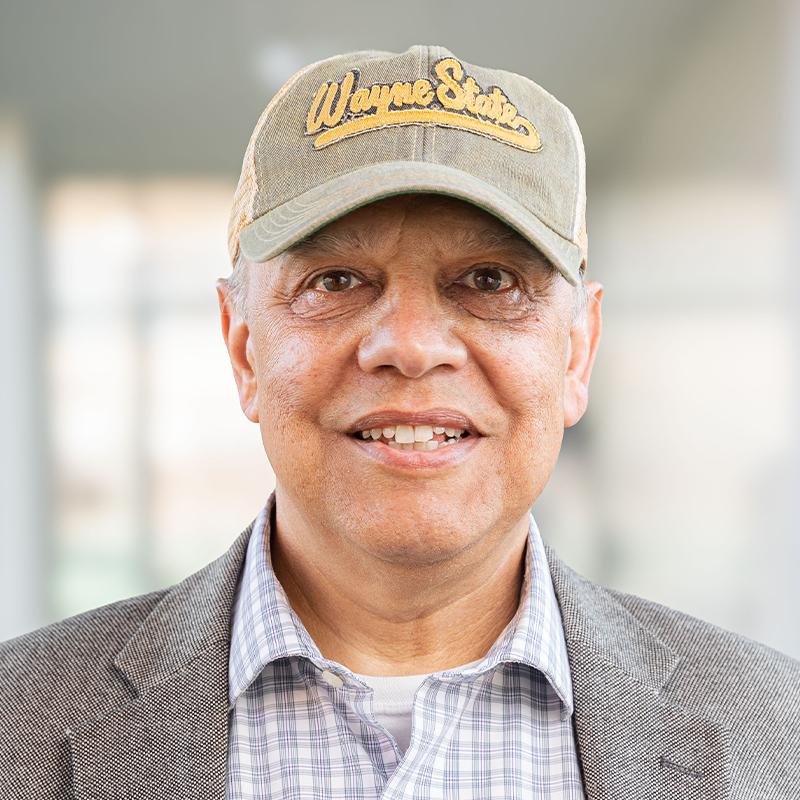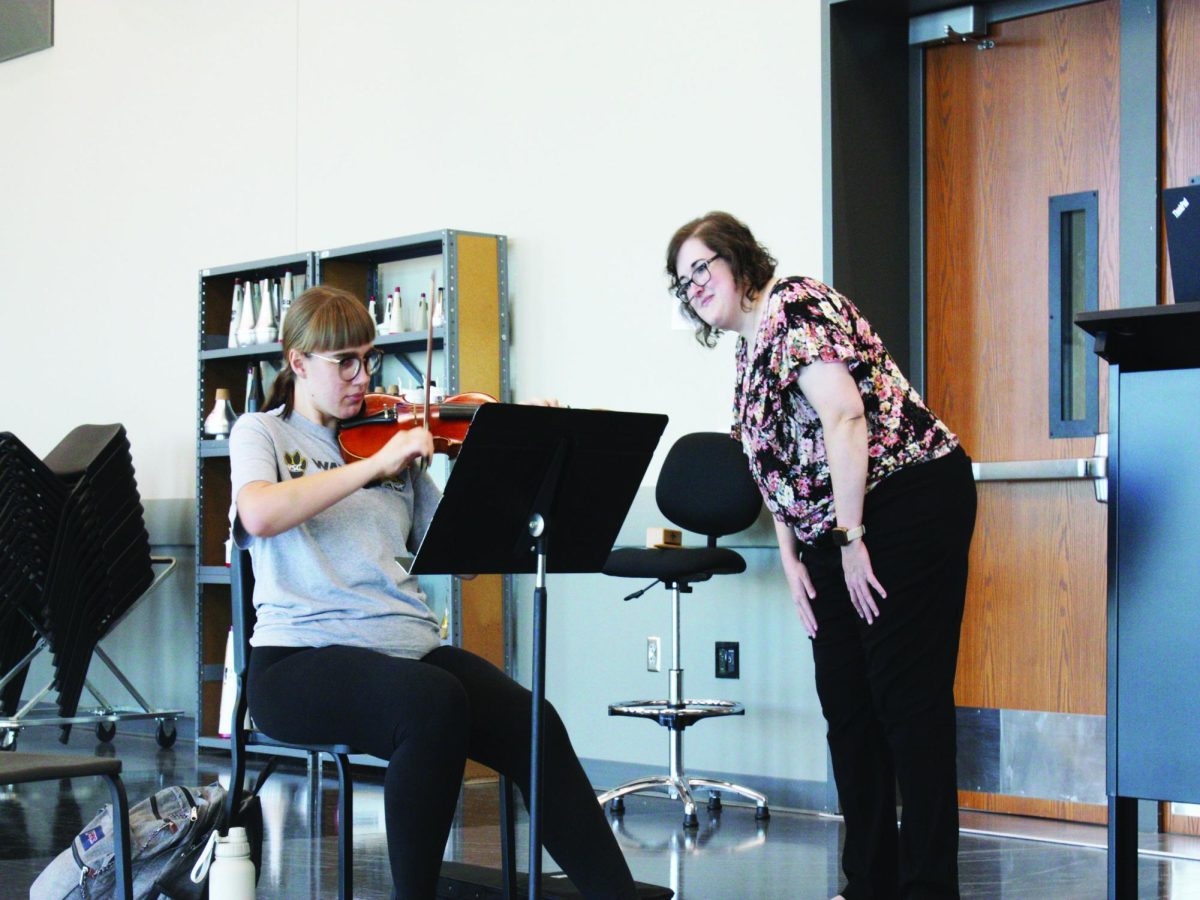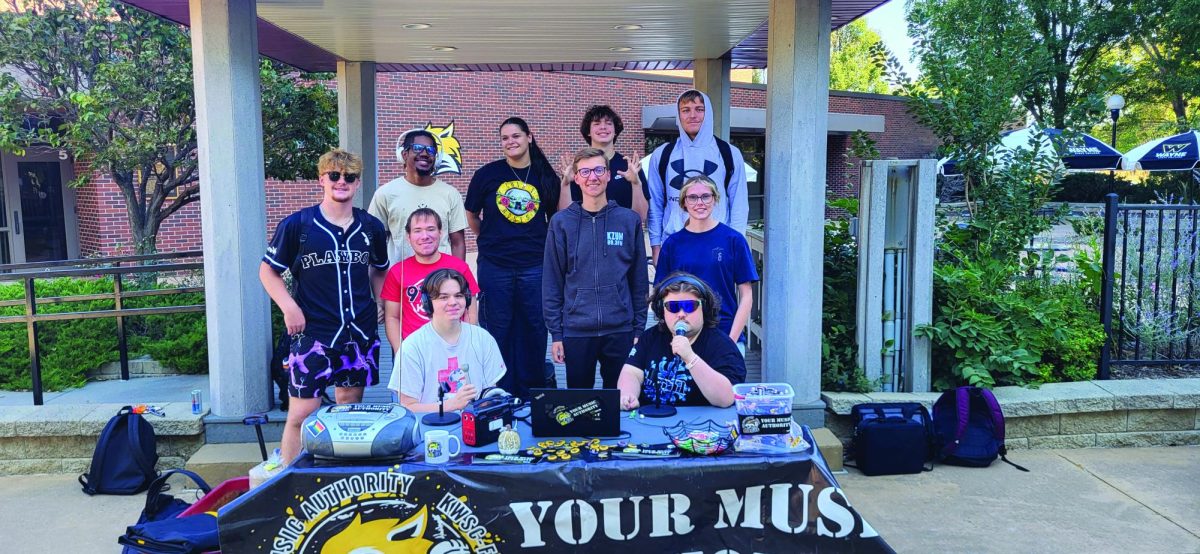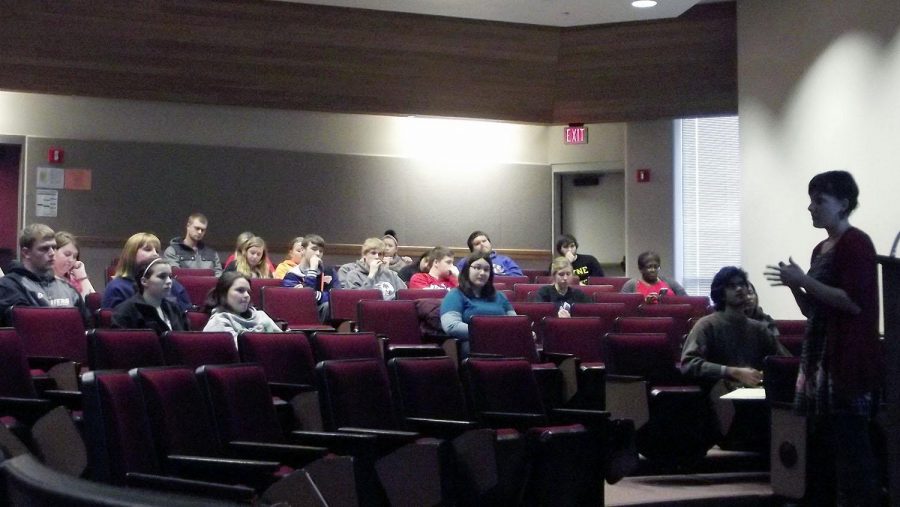Dr. Newcomb brings Olaudah Equiano into spotlight in colloquium
Alana Shriver, Refugee Specialist from Omaha Public Schools came to speak to students last Wednesday in Gardner Auditorium about the problems faced by incoming refugees.
March 2, 2016
Literacy is one of the most powerful tools of change in history.
Dr. Lori Newcomb presented her paper, “A Legacy of Literacy: Olaudah Equiano’s Slave Narrative,” which examined that power and how it influenced Equiano’s life and efforts on the behalf of the English abolitionist movement in the 18th century. The presentation was part of the monthly colloquium series held by the school of Arts and Humantities.
According to Equiano’s book, “The Interesting Narrative of the Life of Olaudah Equiano, Or Gustavus Vassa, The African,” he was born in what we now know as Nigeria before being sold into slavery at a young age.
“There was more of a push for abolition in the 19th century. [Equiano’s] narrative was paving the way for American narratives and their condemnation of slavery.” Newcomb said.
At one point fairly early in the book, his master sent Equiano to England and was given an education by his host family. Armed with an understanding of the English language, he began to run a side business with his master’s permission. Eventually, the profits allowed him to buy his manumission, freeing himself.
The book is an eclectic blend of genres, being equal parts slave narrative, seafaring adventure and conversion story.
Much is made of what Equiano witnesses, usually of the brutalities and injustices visited upon slaves by their masters. What makes it unique, aside from being among the first books of its kind, is that it doesn’t ooze anger the way Frederick Douglass or other former slave abolitionist stories do. Equiano’s tone is more chiding, pointing to the situation and then to the Bible and asking if that’s what a Christian should be doing to his fellow man.
As previously established, Newcomb’s paper examines how Equiano “used the language of the society to indict it for what it was doing—a crime against humanity. He was using language the way a deconstructionist would, to flip the script.”
Simply learning enough English to understand his captors allowed him to downgrade them from terrifying to superior, putting their power within reach if the effort could be invested. Becoming Christian as a part of his education just made this easier for him, as now he had access to the moral teachings that these men supposedly lived and the knowledge to point out the mismatch to them.
“He uses the master’s told to disassemble the master’s house,” Newcomb said during the presentation.








